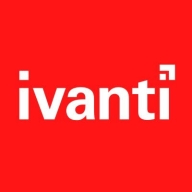


Fortinet FortiClient and Ivanti Secure Access are two leading options for secure access technology. Users feel that FortiClient is better priced and supported, but Ivanti Secure Access offers superior features that justify its price.
Features: Fortinet FortiClient excels with user-friendly setup, comprehensive threat protection, and responsive customer support. Ivanti Secure Access stands out with advanced security features, scalability options, and robust future-proof functionalities.
Room for Improvement: Fortinet FortiClient users highlight the need for improved documentation, advanced configuration options, and additional technical enhancements. Ivanti Secure Access users express concerns about occasional performance issues, a steep learning curve, and focus on usability improvements.
Ease of Deployment and Customer Service: Fortinet FortiClient is praised for its straightforward deployment process and responsive customer support. Ivanti Secure Access also receives good feedback for deployment but has mixed reviews regarding support responsiveness.
Pricing and ROI: Fortinet FortiClient is considered cost-effective with a good return on investment according to user reviews. Ivanti Secure Access is viewed as more expensive but offers valuable returns due to its advanced functionalities.


TNSR is an advanced open source-based secure networking software platform with highly-scalable packet processing, manageability, and service expansion capabilities. This video provides a high-level introduction. that address a number of commonly asked new product questions - in just a couple of minutes.
FortiClient is a fabric agent that delivers endpoint protection, endpoint compliance, and secure access in a single, lightweight, lightweight client, providing visibility, information, and control to your endpoints. In addition, it enables secure, remote connectivity to the security fabric. It also integrates network and endpoint with segmentation and automation. FortiClient enables unified endpoint awareness by sharing endpoint telemetry with the security fabric. It is compatible with third-party EDR (endpoint detection and response and anti-malware solutions.
The FortiClient fabric agent can:
• Report on the status of a device, including firmware version and applications running.
• Send all suspicious files to a fabric sandbox.
• Enforce USB control, application control, URL filtering, and firmware upgrade policies.
• Provide application firewall service and malware protection.
• Enable devices to connect securely to the security fabric over either ZTNA tunnels or VPN (IPsec or SSL), both encrypted. The connection to the security fabric can be either a SASE service or a FortiGate next-generation firewall.
You can purchase FortiClient with one of three levels of capability:
Zero Trust security - The ZTNA edition enables both VPN and ZTNA encrypted tunnels, as well as USB device control and URL filtering.
Endpoint security - The EPP/APT edition adds AI-based NGAV (next-generation antivirus), application firewall, endpoint quarantine, and support for cloud sandbox.
Cloud-based endpoint security
Benefits and Features
• Fabric agent leverages integrations and provides telemetry information to the rest of the Fortinet security fabric.
• SAAS control and web/content filtering
• Dynamic access control helps with automation and simplifies compliance.
• Software inventory management enables visibility as well as management of licenses.
• Automated response detects and isolates any endpoints that may be compromised.
• ZTNA delivers better remote access and consistent application access policies
• Managed endpoint security services remotely assist with setup, configuration, deployment, vulnerability monitoring, and overall monitoring of endpoint security.
Reviews from Real Users:
PeerSpot users like that FortiClient is easy to use and integrates well with other solutions. They also appreciate the richness of its features and find it to be inexpensive in comparison to other products that require separate purchases for separate features.
We monitor all Enterprise Infrastructure VPN reviews to prevent fraudulent reviews and keep review quality high. We do not post reviews by company employees or direct competitors. We validate each review for authenticity via cross-reference with LinkedIn, and personal follow-up with the reviewer when necessary.